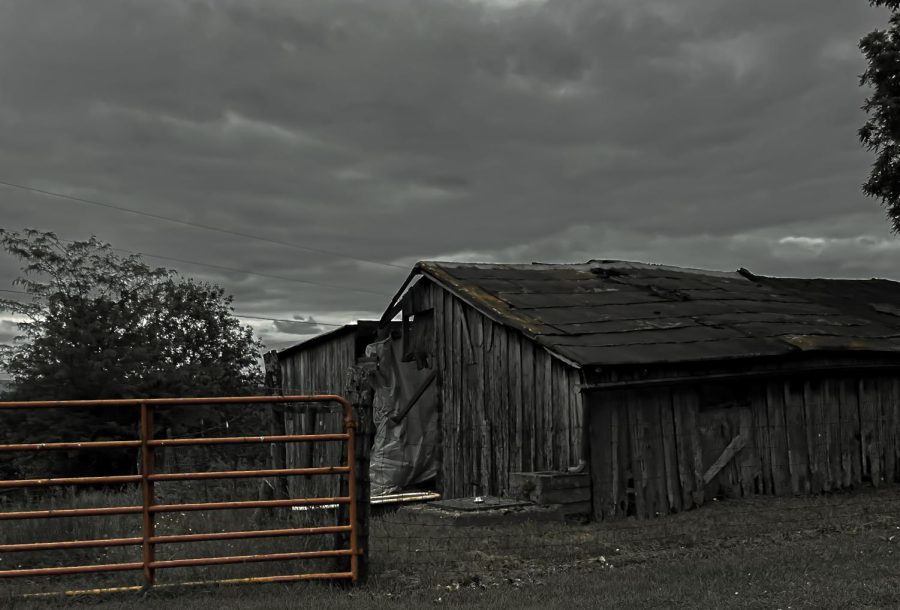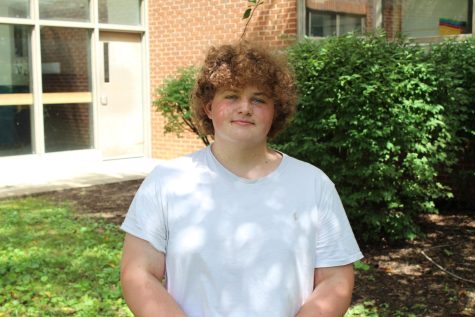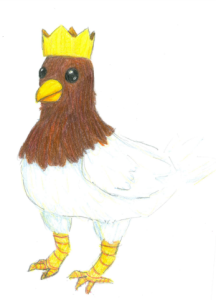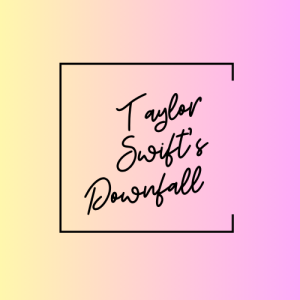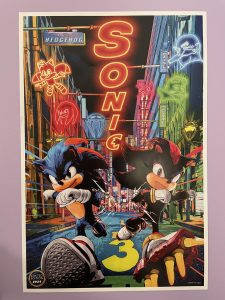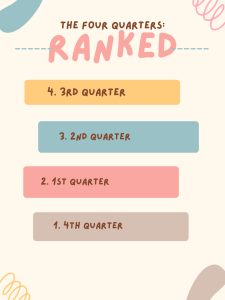Apocalyptic Obsessions
A post-apocalyptic looking abandoned barn in Rockbridge County, Virginia.
May 22, 2023
Be it an alien invasion, a natural disaster, a zombie apocalypse, or a divine flood, humanity has always harbored an obsession with the end of the world. The oldest novel known to man, the ancient Mesopotamian Epic of Gilgamesh even has an apocalypse story, involving the aforementioned divine flood. These apocalyptic flood stories are nearly ubiquitous, with the Quran, Bible, and Torah all containing devastating floods as well.
The late 1800’s and early 1900’s saw the rise of the first literature focused solely on apocalyptic situations. With novels like H.G. Wells’ War of the Worlds paving the way for future post-apocalyptic media. War of the Worlds was such a new concept in science-fiction that its 1938 radio adaptation actually convinced many people of a real Martian invasion, causing a brief worldwide panic. Much of the early wave of the genre would be easier to classify as apocalyptic fiction, as opposed to post-apocalyptic.
A common subgenre of apocalyptic fiction is the comedic apocalypse. Be it the zombie-comedy craze started by “Shaun of the Dead” or comical alien invader flicks such as Mars Attacks! Another popular trope in the genre is the “techpocalypse.” Spurred on by events like the Y2K scare, the techpocalypse genre revolves around either the societal takeover by technology, or the collapse of society due to the failure of modern technology (which all gets even scarier with the rise of AI).
Perhaps the biggest alluring factor in apocalyptic fiction is the “what-if” factor. What if humanity was reduced down to its most basic instincts? What if people started to turn on each other over resources that we take for granted? What if the world was ravaged by some cataclysmic disaster, man-made or otherwise, and only a lucky (or unlucky) few survived? All these questions are ones that humanity is predisposed to ponder. We are born afraid of the dark, and deep down, that never goes away, but it morphs into an innate fear of the unknown. We don’t know what would happen if the world were to come to a complete halt. We have no earthly clue what would become of society if 80% of humanity were to die suddenly.
Another common theme in apocalyptic media is family. Many instances describe actual families just trying to survive, like the father and son in Cormac McCarthy’s Pulitzer Prize winning novel The Road. Others chronicle the stories of families found in the most dire circumstances, surviving together, as shown in The Walking Dead (and its seemingly endless spin-offs). These all show the perseverance that is inherent in humanity. We have a will to survive, even if there doesn’t seem to be a reason.
One of the most recent, and quite possibly the most popular, apocalypses is the zombie apocalypse. Usually created by some long-dormant virus, government-made biological weapon, or supernatural event, the zombie apocalypse watches humans turn into bloodthirsty, murderous undead creatures. First popularized by George Romero’s black and white classic “Night of the Living Dead”, the concept of a zombie apocalypse has enthralled readers, viewers, and players for decades. These pieces of media tend to show how quickly people turn on each other in the name of survival, but they also show how important it is to work together. There is very rarely a zombie apocalypse that follows a singular main character, it is almost always a group. Whether or not they go to war with other groups, remain a friendly beacon of hope for other survivors, or eventually get devoured by the living dead, there is always a group.
After the COVID-19 pandemic, many people began to see the apocalyptic genre in a new light, as less of a cheesy, far-fetched action cliche, but a frightening glimpse into the future. While it may feel a little raw to watch a global pandemic wipe out the population on TV after our own pandemic just ended, the genre has shown no signs of slowing down, especially with recent additions to it like the HBO adaptation of the popular “The Last of Us” video game and the smash hit Netflix series “All of Us Are Dead.”

